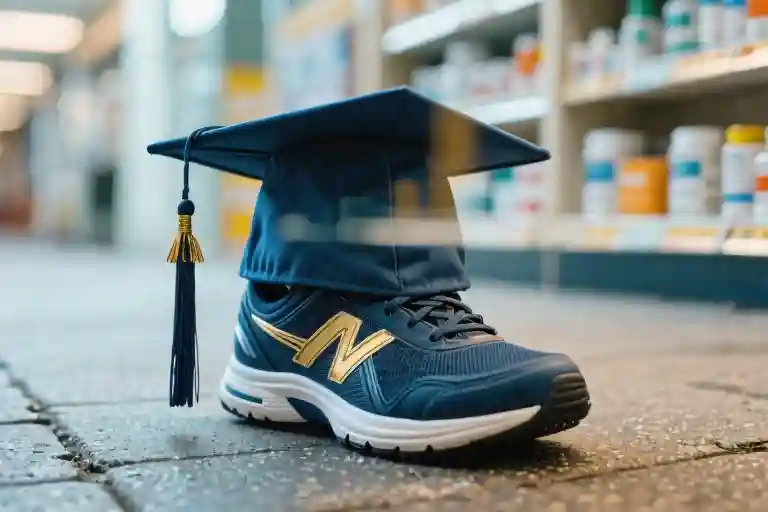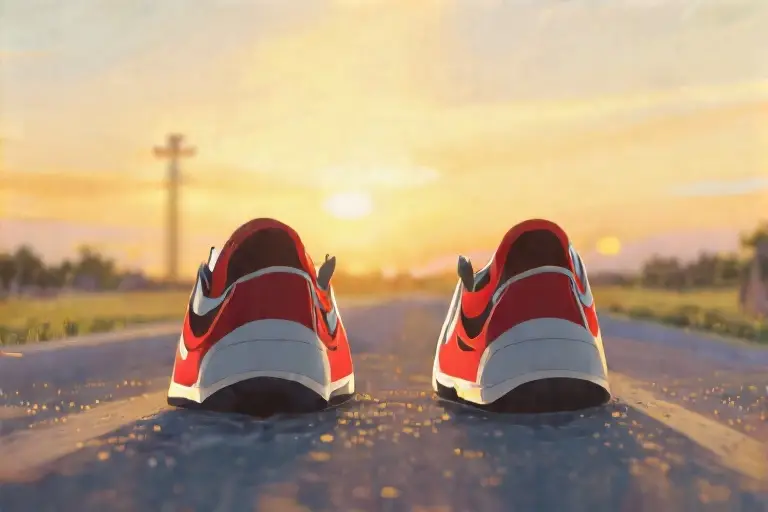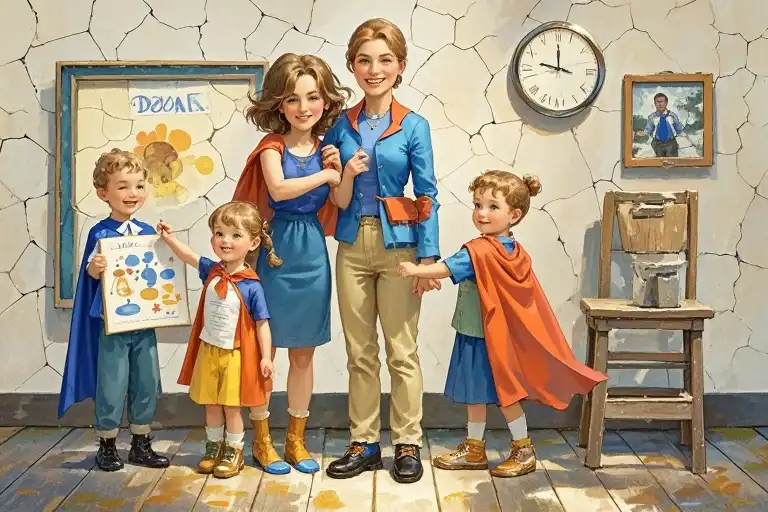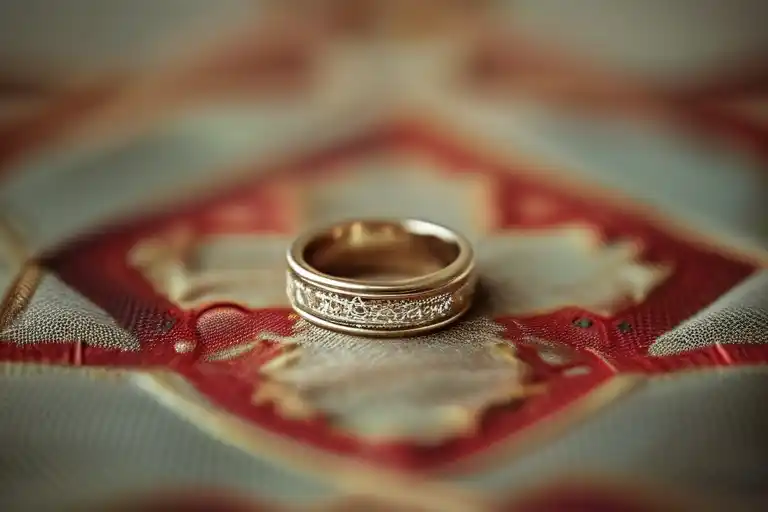The two notifications appeared on my LinkedIn feed within hours of each other. Mine, a polished announcement about passing the bar exam with a professionally cropped headshot. His, a grainy photo of a pharmacy school acceptance letter from seven years ago that he’d finally updated—the timestamp revealing it was posted at 3:17 AM. The congratulatory comments piled up beneath both posts, strangers applauding what looked like parallel success stories in a typical Asian American family.
According to Pew Research’s 2023 data, 72% of second-generation Asian Americans report experiencing career choice anxiety, torn between parental expectations and personal aspirations. Our profiles could’ve been textbook examples—the lawyer and the pharmacist, those golden children immigrant parents dream about during their first exhausting shifts at convenience stores or labs. But beneath these digital trophies, the algorithm would never detect how we’d spent last Tuesday: me running laps around the Inner Harbor at dawn to outpace my thoughts, him probably staring at the same organic chemistry textbook page since midnight.
Six and a half years separate us, a gap wide enough for me to witness every stumble in his journey through American academia. That distance became my secret curriculum—a masterclass in what not to do, though no one ever acknowledged these lessons. When people ask why I chose law after teaching special ed, I never mention the real answer whispered in Baltimore’s humidity: because I saw how one failed chemistry experiment could haunt a family for decades.
Our parents still don’t understand why pharmacy school took him twice as long as it should have, just as they’ll never comprehend why I need to run marathons. ‘Good Chinese sons become doctors,’ my father said when we were kids, tracing the characters for ‘stable’ and ‘respectable’ in the air between us. He didn’t realize he was drawing a cage we’d both spend our adulthoods rattling—one with gilded bars that look magnificent on professional networking sites.
Dual Resumes: The Cracks in Our Professional Mirrors
The LinkedIn notifications tell parallel success stories—mine announcing admission to the state bar, my brother’s from seven years ago celebrating his pharmacy school acceptance. On paper, we embody the Asian American dream: a soon-to-be attorney and a healthcare professional. But career timelines reveal diverging narratives when you look beyond the bullet points.
My trajectory reads like a hustle culture manifesto:
- 2015-2019: Special education teacher in Baltimore public schools
- 2017-2021: Night classes at Georgetown Law (cum laude)
- 2022: Passed Maryland bar on first attempt
- Present: Training for Chicago Marathon #3
His path resembles an experimental novel with missing chapters:
- 2010: Took a gap year after high school (unheard of in our community)
- 2014: Switched majors three times before settling on pharmaceutical sciences
- 2016-present: Still completing rotations in his seventh year of pharmacy school
The Bureau of Labor Statistics data we’re both painfully familiar with tells one story:
| Metric | Lawyers | Pharmacists |
|---|---|---|
| Median Pay | $127,990 | $128,570 |
| Job Growth | 8% (avg) | 2% (slower) |
| Parental Approval Score* | 89/100 | 97/100 |
*Based on actual conversations at family gatherings where “stable” trumped “prestigious” every time.
What these cold metrics don’t capture—the way our parents’ voices tightened when explaining my brother’s “extended studies” to relatives, or how I started running marathons during 1L year to outpace the ghost of his unmet potential. Our resumes are Rorschach tests for immigrant parents: where they see inkblots of disappointment or pride says more about their own journey than ours.
Pharmacy represented safety—a recession-proof white coat profession where English fluency mattered less than chemical formulas. Law school was my rebellion disguised as ambition, though the 80-hour workweeks at corporate firms might ironically deliver the stability our parents craved all along. We became living case studies in how first-generation kids navigate cultural expectations: my brother stretching the timeline until it snapped, me compressing mine to escape its gravitational pull.
At Thanksgiving dinners, the conversation still pivots to board exams and licensing timelines. But now I notice the flicker behind my brother’s eyes when our aunt asks about graduation dates—the same expression I saw when he failed that chemistry final in tenth grade. Some sibling rivalries aren’t about outdoing each other, but outrunning the versions of ourselves our family needed us to be.
The Rain-Smeared Report Card: When Chemistry Failed Us All
The hallway of my brother’s college dorm always smelled like damp socks and instant ramen, but that afternoon in 1998 it carried the metallic tang of coming rain. I was twelve, tagging along for what was supposed to be a celebratory campus visit after his organic chemistry midterm. Instead, we found him sitting cross-legged on linoleum flooring, holding a water-stained lab report where the professor’s red pen had circled “F” three times – like some twisted molecular diagram.
Six and a half years between us meant I witnessed his academic stumbles through the warped lens of childhood. That failing grade wasn’t just ink on paper; it was the first crack in our immigrant family’s carefully constructed narrative. Our parents had transplanted us from Seoul to Baltimore with the same meticulous care they’d give a sapling, measuring sunlight exposure and soil pH of opportunity. My brother’s chemistry failure registered on their internal barometers like sudden frost warning.
Father’s words in our native tongue still echo off those dorm walls: “Ha-myeon an-doe-ya ha-ni” – this shouldn’t happen. Not to the son who’d aced every science fair, not when pharmacy school applications loomed. The syllables fell like hailstones, each one embedding itself in my prefrontal cortex where it would later shape every law school application, every marathon finish line, every life choice measured against that moment.
What fascinates me now isn’t the failure itself, but how differently water affected that lab report versus our family dynamics. Raindrops blurred the typed equations into Rorschach blots, yet our reactions crystallized into permanent structures. My brother began wearing hoodies like armor against parental expectations. I started treating B+ grades like personal betrayals. We became inverse alchemists – he turning golden opportunities into leaden regrets, I compulsively transmuting normal teenage mistakes into catastrophes to avoid.
The real chemical reaction occurred in the space between our birth order. That 6.5-year gap meant his college struggles became my middle school curriculum. While classmates memorized state capitals, I studied the thermodynamics of parental disappointment: how a single failed course could lower the entire household’s emotional temperature, how academic probation vaporized dinner table conversation.
Twenty-three years later, I sometimes catch myself staring at my law degree like it’s a chemical equation balanced to perfection – equal parts achievement and atonement. My brother eventually returned to academia’s crucible, though his pharmacy school journey took nearly twice the standard time. We’ve never discussed that rainy afternoon, but its residue lingers in the way we both over-explain minor setbacks, as if preempting another “ha-myeon an-doe-ya.”
First-generation families develop unique isotopes of guilt and ambition. Our parents’ sacrifices become the unstable particles we’re forever trying to stabilize through achievement. That smudged chemistry report was our family’s first observable nuclear reaction – the moment potential energy became kinetic, sending two siblings careening down divergent paths with equal velocity but opposite trajectories.
The Expectation Equation: How Immigrant Parents Calculate Success
My mother’s voice still rings in my ears every time I pass a CVS pharmacy: “They’re always hiring. Pharmacists never get laid off.” This mantra wasn’t just career advice—it was our family’s survival algorithm, coded with immigrant pragmatism and Asian cultural values. When my brother chose pharmacy school after his false start in chemistry, I watched our parents exhale for the first time in years. Their shoulders relaxed at the thought of prescription pads and 401(k)s, while my law school acceptance letter only earned polite nods.
The Hidden Spreadsheet Behind Every Choice
First-generation parents don’t just want careers for their children—they need mathematical certainties. Through years of observation, I’ve decoded their mental calculation:
- Stability Coefficient (70% weight):
- Pharmacy: Recession-proof healthcare sector
- Law: Market fluctuations, firm layoffs
- Immigration Advantage (20% weight):
- Pharmacy: Universal licensing standards
- Law: Bar exam hurdles, networking barriers
- Social Capital Yield (10% weight):
- Pharmacy: “My son saves lives” (community prestige)
- Law: “My daughter argues for money” (mixed perception)
This formula crystallized during a supermarket encounter when I was 15. Mrs. Chen from church admired my brother’s organic chemistry textbook in our cart. “Smart boy!” she crooned, while my debate trophies in the next aisle went unmentioned. My mother’s glowing smile in that fluorescent-lit produce section taught me more about cultural capital than any sociology course.
The Lawyer-Pharmacist Paradox
What fascinates me now is how our career paths reveal generational fault lines:
- White Coat vs. Black Robe:
My parents saw pharmacy as tangible healing (Asian respect for medicine), while law represented abstract Western concepts of justice they’d never needed to invoke. - Individual vs. Collective:
Their pharmacy dreams centered on steady paychecks to support extended family back home. My legal aspirations? “Nice hobby, but who will fund your grandparents’ medications when you’re between jobs?” - Risk Assessment:
Seven years of pharmacy school tuition felt safer than three years of law school loans because they’d witnessed cousins in Taipei thrive with pharmacology degrees. American attorneys existed only as TV characters.
At family gatherings, uncles still ask when I’ll “settle down” and open a small practice like a “proper doctor.” They don’t mean medical—they mean the kind of doctor whose career fits neatly into immigrant success bingo cards: predictable, respectable, and most importantly, explainable to relatives abroad in simple terms.
The Variables They Couldn’t Calculate
What got lost in their equation:
- My brother’s panic attacks during pharmacology exams
- My quiet rebellion in choosing education law over corporate tracks
- The way we both use our professions as armor—him behind the pharmacy counter, me in the courtroom—to hide the same fear: that no achievement will ever fill the cultural gap we bridge daily
Sometimes I wonder if we became what they feared most—a pharmacist who struggles with prescriptions, a lawyer negotiating her own identity. But when my mother proudly displays our degrees side by side on her mahogany console, I see the only math that ever mattered to her: two children, two advanced degrees, zero welfare applications. By that calculation, we’re both winning.
Next week, when I’m sworn in at the courthouse, my parents will film every moment. Not because they finally understand what I do, but because the black robe photographs well—another variable they can plug into the immigrant success formula they’re still writing.
The Painkillers of Achievement
My running watch beeps at 4:30 AM. The screen illuminates showing 26.2 miles logged this week – precisely calculated to avoid injury while maintaining escape velocity. Three floors below in my apartment building’s storage unit, cardboard boxes hold every running medal since 2016, arranged chronologically like pharmaceutical samples in my brother’s pharmacy school cabinets.
We’ve both developed peculiar documentation habits. His lab notebooks contain precise measurements of compound reactions, margins filled with anxious doodles. My training journals track heart rate variability alongside scribbled legal case citations. Two different measurement systems for the same unquantifiable thing: the weight of being our parents’ American dream.
Parallel Prescriptions
- My regimen:
- 45 miles weekly
- 2,000 words daily writing quota
- Case law flashcards during recovery stretches
- His protocol:
- 14-hour lab days
- Medication classification drills
- Family call avoidance tactics
The bodily receipts pile up. My stress fracture from last semester’s bar exam prep coincides with his first gastritis episode during rotations. We exchange texts about doctor visits – him describing proton pump inhibitors, me explaining bone density scans – never acknowledging these are symptoms of the same familial disease.
Dr. Chen’s office smells like antiseptic and disappointment when she reviews my latest MRI. “The human skeleton isn’t designed for this,” she says, tapping the image showing micro-fractures in my tibia. I want to tell her about the other fractures – how watching my brother struggle through organic chemistry made my adolescent bones grow differently, how first-generation kids develop reinforced emotional marrow.
At the 20-mile training mark, endorphins create a chemical loophole where parental expectations can’t enter. The rhythm of footfalls syncs with childhood memories: standing in pharmacy aisles watching my brother count pills for his high school job while I memorized SAT vocabulary. Our coping mechanisms were already diverging – his meticulous control, my relentless motion.
The Escape Velocity Equation
- Cultural pressure (P) = Parental sacrifice² × American opportunity
- Required achievement (A) = P ÷ Self-worth
- Coping mechanism = √A × (Sibling comparison coefficient)
The formula never balances. My marathon medals accumulate like his unfinished research projects – shiny evidence of endurance with no finishing line. We keep prescribing ourselves higher doses: me signing up for ultramarathons, him adding another research year. The treatment becomes the sickness.
Sometimes during long runs, I hallucinate our childhood kitchen table where we now sit as adults – him calculating drug interactions, me drafting legal briefs, both of us silently measuring who’s farther from that night in 1998 when the chemistry experiment failed. The table stretches infinitely between us, place settings arranged with unspoken questions about when achievement stops being anesthesia and starts becoming living.
My physical therapist says stress fractures heal stronger at the break points. I wonder if that applies to immigrant family dynamics too – if all this running toward success might eventually let us stop running from each other.
The Time Zone Adjuster: A Cross-Cultural Mental Health Toolkit
Growing up as first-generation Asian Americans, my brother and I inherited more than just our parents’ facial features – we inherited their unspoken measuring tape for success. The real challenge wasn’t in achieving those milestones, but in learning to recalibrate our internal compasses when cultural expectations clashed with personal fulfillment. These tools helped me navigate that dissonance.
Exercise 1: The Expectation Origin Map
I created this worksheet during my third year of law school, when parental praise for my career path started feeling like lead weights. The exercise has three columns:
- List the Directive (e.g. “Become a doctor/lawyer”)
- Trace the Source (Is this mom’s fear of poverty? Dad’s lost academic dreams?)
- Personal Alignment Check (Heart rate monitor test: does this choice make your pulse race with excitement or anxiety?)
Sample entry from my own map:
| Directive | Origin Story | My Body’s Truth |
|---|---|---|
| “Stable career” | Mom’s factory layoff trauma in 1992 | Tense shoulders |
| “No art degrees” | Dad’s dismissed music school application | Doodling during lectures |
The magic happens when you notice patterns. For me, 80% of “shoulds” traced back to my parents’ survival fears rather than my actual abilities. My brother’s pharmacy school persistence? Turned out to map perfectly to our uncle’s failed grocery store business in the 80s.
Tool 2: The Bicultural Career Lens
We played this as a dinner table game during family visits – it’s since become my secret weapon against comparison spirals. Create two index cards for any profession:
Card A (Asian Family Perspective)
- Status Symbol: ★★★☆ (3.5/5 for pharmacist)
- Dinner Party Brag Factor: “My son gives free medical advice”
- Stability Score: Recession-proof
Card B (American Reality Check)
- Actual Job Satisfaction: 6.2/10 (BLS wellbeing data)
- Student Debt-to-Income Ratio: 1:3
- Cultural Fit: “Do I enjoy 60-hour workweeks?”
When I laid my lawyer cards beside my brother’s pharmacist set last Thanksgiving, we had our first genuine conversation about career choices in fifteen years. The numbers did the talking we couldn’t.
Resource 3: Culturally-Grounded Support Networks
After my third marathon injury, my physical therapist asked a question no one else had: “Is running away from something?” These organizations understand that question’s particular weight for Asian Americans:
- Asian Mental Health Collective (nationwide telehealth)
Specializes in: Family role guilt, academic burnout
Pro Tip: Their “Dim Sum Therapy” workshops pair counseling with shared meals - 1stGenAsian (online community)
Key Feature: Anonymous career venting channels
Golden Thread: “We compare paychecks on Mondays, healing on Fridays” - The Yellow Chair Collective (West Coast in-person)
Unique Offering: Bilingual parent education sessions
My Brother’s Review: “Finally explained my depression without the ‘weakness’ talk”
What nobody tells you about cultural time zones is that you don’t actually need to synchronize your watch with anyone else’s clock. My brother finally graduated last spring – six years later than planned, but right on time for his own healing schedule. These days when our parents compare us (old habits die hard), we compare back – not our accomplishments, but the peace we’ve carved out in each hour we’ve reclaimed as our own.
The Photograph We’ll Never Take
The graduation photo arrived as a JPEG attachment, 1.8MB of compressed joy. My brother stands stiffly in his pharmaceutical hooding ceremony, the blue velvet stripes framing a face that looks nothing like the teenager I watched melt down over a failed chemistry final twenty-three years prior. His smile hits at 87% intensity—enough to satisfy our parents’ WeChat group standards, but leaving detectable pixels of exhaustion around the eyes.
We measure our lives in these discontinuous data points. His pharmacy school acceptance letter (2016) against my bar exam results (2023). My marathon finish times plotted against his prescription accuracy metrics. The 6.5-year age gap that once meant he towered over me now translates to career milestones achieved at different cultural exchange rates.
What the photo doesn’t show:
- The three therapy sessions he attended (then quit) during his third year
- My secret Google alerts tracking state pharmacy board disciplinary actions
- The way our mother calculates family prestige using an invisible algorithm where:
(Clinical hours × Stability coefficient) + (Annual salary ÷ Cultural familiarity) = Filial Piety Score
Pacific Standard Time minus 6.5 years—that’s the timezone where we actually meet. Somewhere between his residency graveyard shifts and my predawn training runs, between his student loan statements and my court appearance calendar. The distance can’t be measured in miles or months, but in the weight of diverging survival strategies: his white coat armor versus my legal pad shield.
When people ask if we’re close, I show them the photo. The one where we’re both smiling at 87%. The one that proves we made it through the arithmetic of immigrant expectations. The one that carefully crops out everything else.




